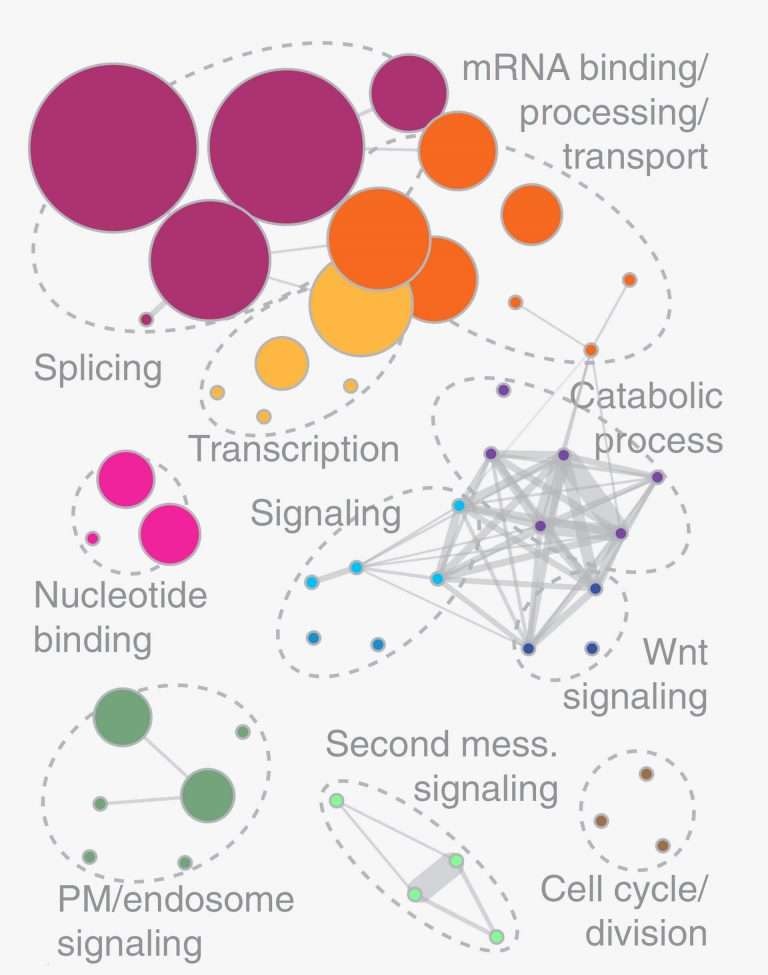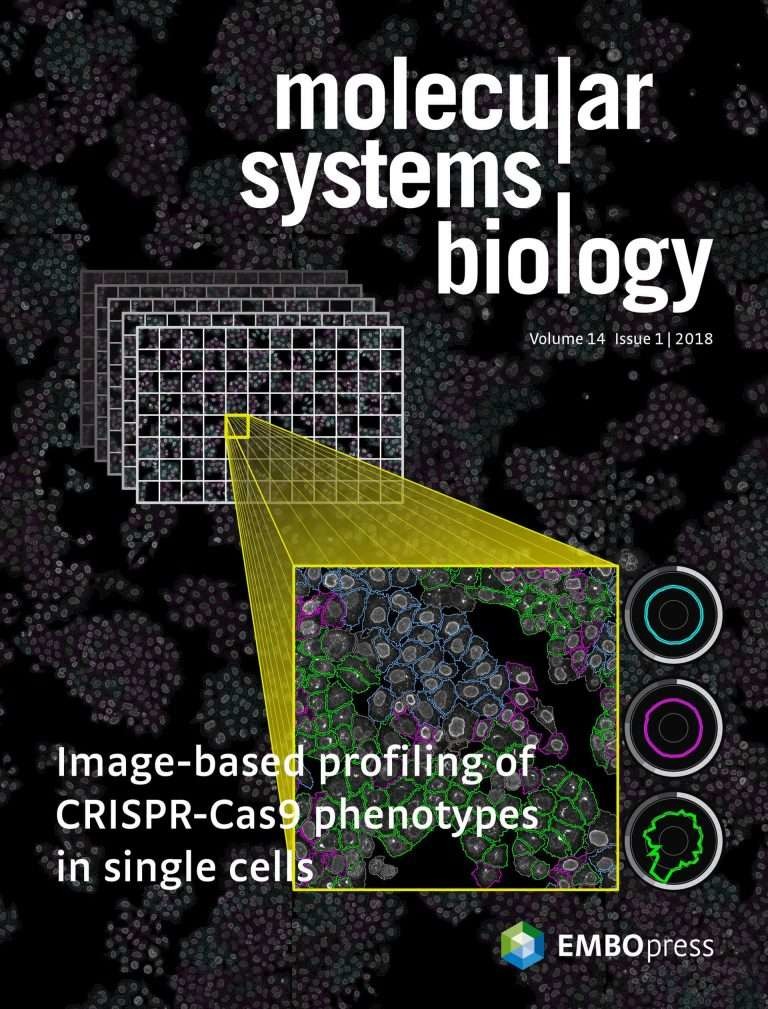News
28/06/2021 Quentin Szabo was awarded with a Forschungskredit UZH and a EMBO fellowship
Quentin Szabo was awarded with a Forschungskredit UZH and a EMBO Fellowship. Congratulations!
09/02/2021 Alexa McIntyre has been awarded the MSCA individual fellowship
Alexa McIntyre was awarded with the prestigious Marie Sklodowska Curie postdoctoral Fellowship. Congratulations!
25/01/2021 4i Labs wins Venture Kick support
Gabriele Gut has successfully pitched his plans for 4i Labs, a start-up based on the 4i technology that he developed in the lab, in front of the Venture Kick jury.
Check out the news item here.
Venture Kick allows entrepreneurs to pitch their business idea and receive useful feedback and support. Check out their approach here.
21/01/2021 Commentary on the Tumor Profiler Study
We are very proud to be part of this exciting consortium to apply our expertise in high-throughput multiplexed imaging to functional drug response profiling of patient biopsies: The Tumor Profiler Study: integrated, multi-omic, functional tumor profiling for clinical decision support
01/05/2020 ERC Advanced Grant
we are happy to announce that we have been awarded the ERC Advanced Grant!
1/11/2019 Alexa McIntyre joined the lab
Alexa McIntyre has joined our lab as a postdoctoral fellow coming from Weill Cornell Medicine, New York.
30/9/2019 4i Labs wins Venture Kick support
Gabriele Gut has successfully pitched his plans for 4i Labs, a start-up based on the 4i technology that he developed in the lab, in front of the Venture Kick jury.
Check out the news item here.
Venture Kick allows entrepreneurs to pitch their business idea and receive useful feedback and support. Check out their approach here.
20/9/2019 Keisuke Fujita joined our lab
Keisuke Fujita has joined our lab as a postdoctoral fellow coming from the RIKEN institute in Kyoto.
Keisuke did his PhD at Osaka University followed by a post-doc at the RIKEN Quantitative Biology Center. He will join the Pelkmans lab in September 2019 to work on scale-crossing and multiplexing super-resolution techniques for imaging transcriptomics.
1/6/2019 Katrina joined the lab
Katrina Meyer joined our lab as a postdoctoral fellow coming from the Max Delbruck Center in Berlin.
Katrina did her PhD in the group of Matthias Selbach at the MDC in Berlin on disease-causing mutations in intrinsically disordered cytosolic regions of transmembrane proteins. Check it out here. In the Pelkmanslab, Katrina will work on understanding the role of liquid-liquid unmixing in chromatin organisation and regulation.
1/6/2019 Seed Network from CZI
We will participate in a seed network project for the Human Cell Atlas funded by the Chan Zuckerberg Initiative.
In collaboration with the groups of Barbara Treutlein, Gray Camp, Prisca Liberali, Smita Krishnaswamy, and Jason Spence, we will participate in a project to build a spatiotemporal atlas of a single individual’s multi-organ developmental program by applying integrated single-cell RNA-seq and 4i spatial maps to primary tissue and matched iPSC-derived organoids from the same individual.
More information:
1/3/2019 Adrian joined the lab
Adrian Tschan joined the lab as a PhD student coming from the University of Zurich.
Adrian first joined the Pelkmanslab in October 2017 to carry out his master’s thesis, during which he worked on ways to quantify variability in bacteria and measured how it is affected by bacteriophage infections. He is currently working on experimental and computational approaches that might allow to cross scales in live-cell imaging and single-particle tracking.
1/11/2018 Max joined the lab
Max Hess joined the lab as a PhD student, coming from the ETH Zurich.
Max studied Biology at ETH Zürich and recieved his Master’s degree in Neurosciences. During his master thesis he investigated the morphology of C. elegans mechanosensory neurons during aging. In the Pelkmanslab, Max will work on on establishing imaging protocols and data analysis pipelines for 3D structures.
17/10/2018 Doris Popovic’ paper online
Doris Popovic’ work on single-cell relationships between mRNA and protein abundance is now online.
10/10/2018 Doris Berchtold’s paper online
Doris Berchtold’s systems-level study on molecular regulators of 6 membraneless organelles in human cells is now online.
2/10/2018 Paper accepted in Molecular Cell

Doris Berchtold’s paper entitled ‘A systems-level study reveals regulators of membrane-less organelles in human cells’ is accepted for publication. Congratulations!!
This work performed parallel large-scale gene perturbation screens in human cells on 6 membraneless organelles, and applied advanced computer vision and multivariate analyses to quantify effects on the morphology and abundance of these organelles at the single-cell level for each of the perturbed genes. This generated an unprecedented resource for deciphering the homeostasis of these organelles, identifying specific regulators, revealing regulatory crosstalk between organelles, and for finding hierarchical interactions between membraneless organelles and the phenotypic state of cells, shining new light on their cell physiological roles. Following up on PML nuclear bodies revealed that the dual-specificity kinases HIPK1/2 control their abundance, which may be a means to regulate progression through S phase.
22/8/2018 Paper accepted in Cell Systems
Doris Popovic’s paper entitled ‘Multivariate Control of Transcript to Protein Variability in Single Mammalian Cells’ has been accepted for publication. Congratulations!!
This work reports that correlations between mRNA and protein abundance of the same gene across thousands of single cells are often quite high, and that single cells that are outliers of such linear correlations are, moreover, the result of a gene-specific adaptation of mRNA-to-protein ratios to properties of the phenotypic state and microenvironment of individual cells. Accounting for this allows an accurate prediction of protein abundance in single cells. Using gene induction of JUN illustrates that these properties of single cells can influence mRNA-protein relationships at multiple levels in sometimes non-intuitive ways, involving adaptation of transcription, nuclear export, protein translation, and mRNA decay. Finally, the work shows that also subcellular patterns of JUN transcripts vary non-randomly between single cells and are adapted to the extent of local cell crowding, which may contribute to determining cell-to-cell variability in mRNA-to-protein ratios.
3/8/2018 Gabriele’s paper online
Gabriele’s work on developing iterative indirect immunofluorescence imaging (4i) is online.
Check it out here.
6/7/2018 Gabri won BioEntrepreneur-Fellowship
Gabriele has been awarded the UZH BioEntrepreneur-Fellowship based on his project to apply 4i in precision medicine. Congratulations!!
4/7/2018 Arpan’s paper online
25/5/2018 Paper accepted in Science
Gabriele’s paper entitled ‘Multiplexed protein maps link subcellular organization to cellular states’ has been accepted for publication. Congratulations!!
This work reports the development of iterative indirect immunofluoresence imaging (4i), which allows 40-plex immunostaining of hundreds of thousands of single cells using conventional primary and secondary antibodies in high-throughput. Combined with cellular computer vision, this generates a wealth of quantitative information about biological samples from the millimeter to the nanometer scale. It also reports a novel pixel-based computational approach that allows the unsupervised comprehensive quantification of protein sub-compartmentalization within various multicellular, cellular, and pharmacological contexts. These approaches have enormous potential for biomedicine in both fundamental research, diagnostics and personalized medicine.
23/5/2018 Paper accepted in Nature
Arpan’s paper entitled ‘Kinase-controlled phase transition of membrane-less organelles in mitosis’ has been accepted for publication. Congratulations!!
This work shows that the dual-specificity kinase DYRK3 drives the dissolution of membrane-less organelles as cells undergo cell division, and adds to our increasing evidence that DYRK kinases represent a novel class of cellular regulators that control liquid phase transitions in cells (see also Wippich et al., 2013).
31/1/2018 Reinoud’s paper on the cover

Reinoud’s paper is featured on the cover of the January 2018 issue of Molecular Systems Biology.
4iLabs wins CHF 150,000
4iLabs wins CHF 150,000 to advance personalised cancer therapy options. Congratulations to Gabriele Gut!